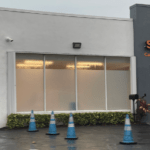In our modern era, where a few taps on a smartphone can summon virtually anything—from gourmet meals to cannabis products—it’s worth pondering: Has our culture become lazier in engaging with everyday tasks like shopping or dining out? The rise of on-demand services has undeniably transformed our habits, but at what cost?
The Allure of Instant Gratification
The convenience economy has reshaped consumer behavior. According to a report by Euromonitor International, consumers are increasingly willing to pay a premium for convenience, valuing time-saving solutions over traditional shopping experiences. This shift is evident in the proliferation of food delivery apps, which have seen significant growth since the onset of the pandemic.
Cannabis Industry: Riding the Convenience Wave
The cannabis industry has not been immune to these trends. Delivery services have become a pivotal part of the market, offering consumers the ability to order products from the comfort of their homes. This model has not only catered to consumer demand but also fostered competition and market expansion.
However, this convenience comes with challenges. Regulatory hurdles, such as those seen in Denver, have impacted the growth of cannabis delivery services. Despite efforts to support social equity companies, marijuana deliveries in Denver have seen a significant decline, with sales dropping every month between January and October compared to the previous year.
The Social Cost of Convenience
While the convenience economy offers efficiency, it also poses challenges to our social fabric. The decline of in-person shopping and dining experiences can lead to reduced social interactions and a sense of community.
Moreover, the shift towards online services has impacted traditional retail sectors. Empty retail spaces and the decline of brick-and-mortar stores are visible reminders of this transformation.
Balancing Convenience with Engagement
As consumers, it’s essential to find a balance between embracing convenience and maintaining engagement with our communities. Supporting local businesses, participating in community events, and choosing in-person experiences can help preserve the social aspects of shopping and dining.
For the cannabis industry, this means finding ways to integrate convenience with community engagement. Dispensaries can offer both delivery services and in-store experiences that foster education and social interaction.
In Summary
The convenience economy has undeniably changed the way we live, offering unprecedented access to goods and services. However, it’s crucial to remain mindful of the potential social costs. By consciously choosing to engage with our communities and support local businesses, we can enjoy the benefits of convenience without sacrificing the richness of in-person experiences.







